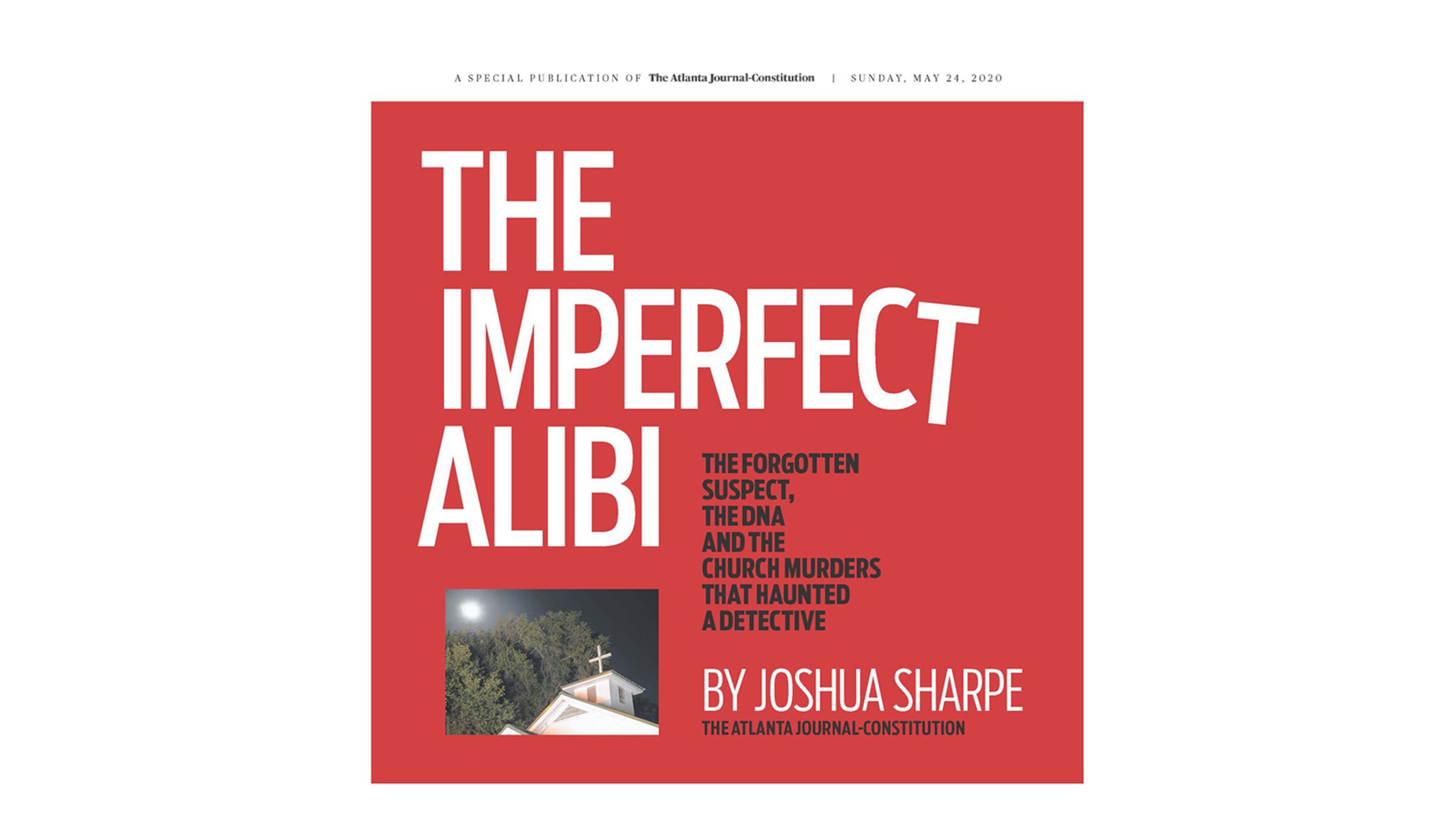Opinion: Great reporting, editing yields great story

There’s nothing as magical in journalism as a great reporter and a great editor chasing a hot story.
As the senior leader for investigative journalism and news content at The Atlanta Journal-Constitution, I get to see this magic pretty often in our newsroom. But rarely is the story as surprising and unusual as "The Imperfect Alibi," a special project that appears in today's newspaper.
I knew Jan Winburn was a great editor when I hired her last year to work with our newsroom on a style of journalism known as narrative writing. Winburn is a nationally respected expert in the genre, which mixes the literary style of fiction with the deep reporting that is a hallmark of our investigative reporting. Winburn had most recently worked with reporters on award-winning journalism at CNN, but I knew her from five years as a narrative editor in our newsroom from 2004-2009. She managed the reporters on a lot of terrific stories, including a riveting 22-part series on a hospital rescue during Hurricane Katrina and several narrative stories out of the 2005 Fulton County courthouse shooting when a judge, a court reporter, a sheriff’s deputy and a customs agent were killed.
» SPECIAL PRESENTATION: The Imperfect Alibi
» VIDEO DOCUMENTARY: Introducing the Rising Daughter investigation
When she joined us for our writing initiative last year, we let Winburn take proposals from reporters and choose the stories to work on. One of her choices was a proposal by reporter Joshua Sharpe, who wanted to dig into a 35-year-old murder case in South Georgia that had resulted in a conviction two decades ago. The shooting of a beloved couple while they attended a mission meeting at Rising Daughter Baptist Church in Camden County had been investigated off and on for more than three decades. I have to admit, I was skeptical that we would turn up anything new. Plenty of people thought the man who was ultimately convicted was innocent, and The Georgia Innocence Project and King & Spalding law firm were trying to get a new trial for Dennis Perry. But the odds looked daunting.
Enter the magic of a great editor and great reporter.
“What I’ve observed about crime reporting over the years is that a good reporter who is allowed to look long and far enough is almost guaranteed to uncover information missed by authorities who are swamped with too many leads, or battling political pressure, or struggling for enough resources,” Winburn recalled in an email interview this week. “There are so many books and podcasts that prove this to be true.”
» FULL COVERAGE: The Rising Daughter investigation
» HOW IT WAS REPORTED: The team that brought you "The Imperfect Alibi"
Sharpe had heard of the case from the Georgia Innocence Project and was familiar with a podcast called Undisclosed that had dug into the case when he made his pitch. Sharpe was intrigued by someone they had not looked into deeply, a former suspect named Erik Sparre, who had allegedly suggested to two people that he was responsible for the killing.
“From covering other potential wrongful conviction cases, I know that in addition to the terrible trauma caused to the innocent person convicted, there is another trauma. The victims’ families almost never get to find out who actually killed their loved one,” Sharpe told me via email. “The prospect of finding the real identity of the killer, of bringing closure, had been tantalizing. So in this case, I started with a daunting goal: determine if Dennis Perry is guilty, and if he isn’t, figure out who is.”
Winburn says she picked Sharpe’s proposal because of the mystery.
“This wasn’t a case in which the convicted appears innocent but there are no other known suspects,” Winburn said. “There were at least two who’d been looked at seriously back in the day, so there were many layers to peel back.”
Winburn was familiar with Sharpe’s work at our paper; she knew he had a reputation as a digger and she described him as “undaunted.” Among the stories Sharpe has reported on: the three Army veterans wrongly convicted of murder who spent 25 years in prison; a terrible child abuse and killing case in Effingham County and the lingering pain of an unresolved allegation of child abuse against a Catholic priest.
I’ll let you learn the details of today’s story by reading it, but I don’t think it’s a spoiler to say here that a DNA test changed the story significantly.
I asked Sharpe about his reaction to that.
“When I found out the DNA test was a match, I hollered: “Oh my God,” Sharpe said. “I’d spent months reporting, often wondering if I would fail, if I was wasting time tumbling down the numerous rabbit holes this case offers. I guess I’d been mentally holding my breath for an answer. News of the match gave me my answer: I hadn’t wasted my time, I hadn’t failed.”
The project, which appears in a special section in print and an elegant presentation in digital, ultimately took dozens of AJC employees to put together. And every contributor did excellent work. But let's acknowledge an essential truth: the story would never have happened without a great editor and a great reporter. Thank you, Jan and Josh.


